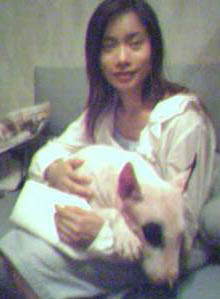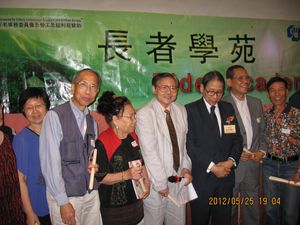Markets 'strong' despite slowing economy - Bush
轉載
President is upbeat about the economy after meeting with financial advisors.
WASHINGTON (AP) -- President Bush said Friday that while there is some uncertainty about slowing economic growth, the nation's "financial markets are strong and solid."
Bush spoke after getting an uрdate from his top economic advisers, who are helping him decide whether to offer a package to stimulate the U.S. economy as it weathers the housing slump, rising oil prices and an uptick in unemployment.
"This economy of ours is on a solid foundation, but we can't take economic growth for granted," Bush said. "And there are signs that will cause us to be ever more diligent and make sure that good policies come out of Washington."
Sitting around a table with his economic advisers in the Roosevelt Room, the president warned Congress against taking steps that would increase taxes. "If the foundation is strong yet indicators are mixed, the worst thing that Congress can do is raise taxes on the American people and on American businesses," Bush said.
Bush met with the advisers - his first with them as a group - the same day that the Labor Department reported that hiring practically stalled in December, driving the nation's jobless rate up to a two-year high of 5 percent. The report, which fanned fears of a recession, indicated that employment conditions are deteriorating, strained by the housing crisis and credit crunch that are sapping economic strength. On Wall Street, stocks tumbled.
"While there is some uncertainty, the report is that the financial markets are strong and solid," Bush said.
He described the nation's economic indicators as mixed.
He said there have been 52 straight months of job creation, but job growth slowed last month; core inflation is low, but U.S. consumers are paying more for gasoline and for food; and consumer spending is strong, yet the values of many U.S. homes are on the decline.
"For those of you who are paying more and are worried about your home, we understand that," Bush said. "That's why we have an aggressive policy to help creditworthy people stay in their homes."
He urged Congress to pass legislation to help homeowners refinance. Bush also called for expanding petroleum refining capacity and exploring for energy in "environmentally friendly ways."
"We have got to understand that if we are worried about gasoline prices, we ought to expand refineries here in the United States, and we ought to explore for oil and gas in environmentally friendly ways in the United States," he said.
The White House is not ready to say if Bush will offer a stimulus package - possibly coinciding with his State of the unіon address on Jan. 28.
Deputy press secretary Tony Fratto said before the meeting that the president and his advisers are looking at ways to keep the economy open for foreign investments, open up markets for U.S. exporters, and fight against efforts to raise taxes. They are also looking at shorter-term threats to economic growth, including the downturn in the housing market. Tax cuts are among the things being considered for a possible stimulus package, he said.
"We're not ready to say whether we will, in fact, have something or not, at this point," Fratto said. "We need a little bit more information. There are lots of ideas out there. Obviously tax policy is an important component, but we'll see. We want to take in more data."
Vice President Dick Cheney and other White House officials joined Bush in his meeting with his working group on financial markets, an interagency panel led by Treasury Secretary Henry Paulson that meets regularly to discuss market conditions and regulatory policy. Others around the table included: Federal Reserve Chairman Ben Bernanke; Chris Cox, chairman of the Securities and Exchange Commission; Walt Lukken, acting director of the Commodity Futures Trading Commission; Ed Lazear, chairman of the president's Council of Economic Advisers; and Treasury Undersecretary Robert Steel.
On Monday in Illinois, Bush is expected to give a "status check" on the economy at the unіon League Club of Chicago. The president, however, is not expected to tip his hand about what he might propose to reinforce the economy.
The December employment picture was much weaker than economists were expecting. They were forecasting the unemployment rate to bump up to 4.8 percent, not 5 percent.

298











以房地產來說,好多租約都帶有陷阱,最好還是著眼於周遭同類型物業的最近及歷史成交價,以作參考。
至於股票,我本人都係睇市盈率、市值規模、大股東等等。雖然歷史數據只能作參考而無保證,但總好過相信那些預測數字,預測數字更加是參考性質,更加無保證。
大家小心喇。
十分抱歉,只是回來發文,未有餘空回覆。
今天又是新的一天,我既研究工作都到了尾聲…
貼了出大廳,自己都留個 copy:
1、炒股是資源再分配,並不創造財富。
2、開辦股市就是為了賺錢,不給你一點甜頭你不會進來,更不用說掏錢。
3、中國股市沒有做空機制,往下做只不過是為了將來往上拉。
4、主力有遠大目標,顯得大智若愚。散戶有小聰明,卻是大愚若智。
5、人性有恐懼和貪婪,主力專找這兩死穴攻擊。散戶卻不承認自身有此毛病。
6、趨勢理論其實非常重要,其時我們大部分時間都在等待,下跌途中空倉等待,上漲途中滿倉等待,只有轉勢那一刻才動手買賣。均線可以幫我們判斷趨勢,但如果你不懂或不信它,誰也救不了你。
7、主力可以用日K線騙你,但它無法用月K線騙你,因為拆借資金玩不起時間,利息成本太高。
8、主力當然知道軟件的威力,所以它會在底部或頂部區間上下震蕩,使忠實反映情況的軟件發出前後矛盾的信號,你拋開軟件正中主力下懷。沒了K線圖就等於被廢去雙眼,你還想幹啥?等你悟出月K線的奧秘,你就會愛上軟件。
9、物極必反的原理非常適合炒股。如果你悟出它的真締,你就不會再幹出追高殺低的蠢事。至少你不會再衝動。KDJ/BOLLING都是很好的防衝動指標。
10、週密計劃是主力成功的關鍵所在。介入價位,密集成交區,籌碼分佈,指標高低,時間跨度,題裁配合,意外狀況,止損/止盈點……現在明白主力為什麼會賺你的錢了吧?
自古以來,人類就好迷信。
唔係淨係中國人迷信,全世界都係,我都係。
邊鬼個咁「有心」啊,特登刪左幾十年前既留言,人地個風水局都攪,呵呵呵。
呢度個制度真係,唉。o的人都好咩姐。
日出日落何時有改變,向天仰望,大笑三聲至得了,哈哈哈。